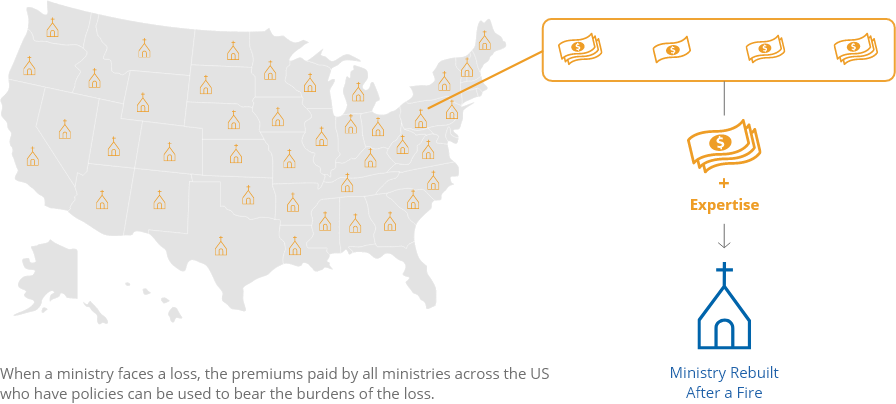Elements of a ministry insurance policy
Property & Liability Policy
The first item that goes into your mug is a property and general liability policy. It's your premium roast. In the same way you choose a decaf or regular coffee—or light or dark roast—you can choose to cover basic, broad, or special perils depending on your needs. Perils are causes of loss, such as wind, fire, or hail.
Endorsements
Once you have your foundation of property and liability coverage (your black coffee), endorsements are added to customize protection. You may need a pump of vanilla, some sugar, and cream in your coffee—or you may just need a dash of milk. Your insurance coverage can be personalized in a similar way by adding endorsements to the policy. Brotherhood Mutual has hundreds of ways your policy can be fitted to your needs.
Additional Coverages
When you’ve made your perfect coffee, you might want a pastry to complete your morning—a donut or a croissant to satisfy your sweet tooth. You can also bundle other insurance coverages with your property and liability policy, such as workers' compensation, auto insurance, accident insurance, global mission protection and more. Brotherhood Mutual has many options to protect ministries.
When you’ve worked with your agent to determine the coverage and endorsements that are best for your ministry, you’ll end with a policy that is personalized to your ministry. Ready to start the conversation? We're happy to connect you with an agent.








